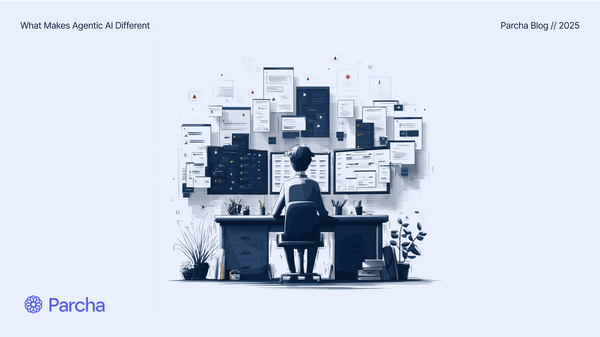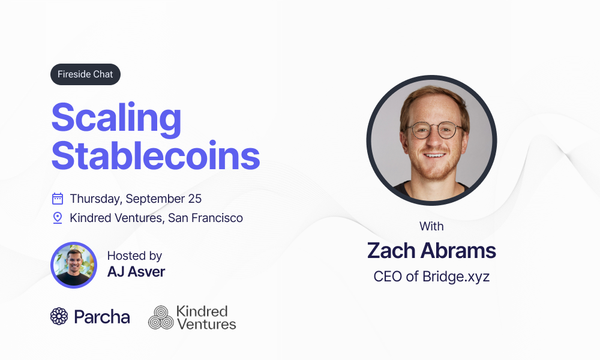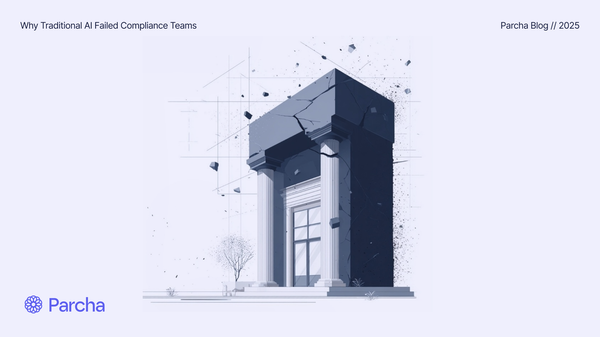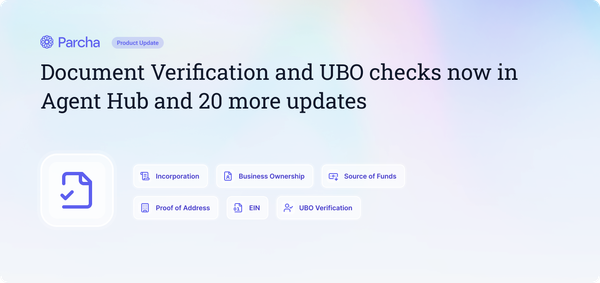Ep 2: Is regulation still playing catch up with financial innovation?
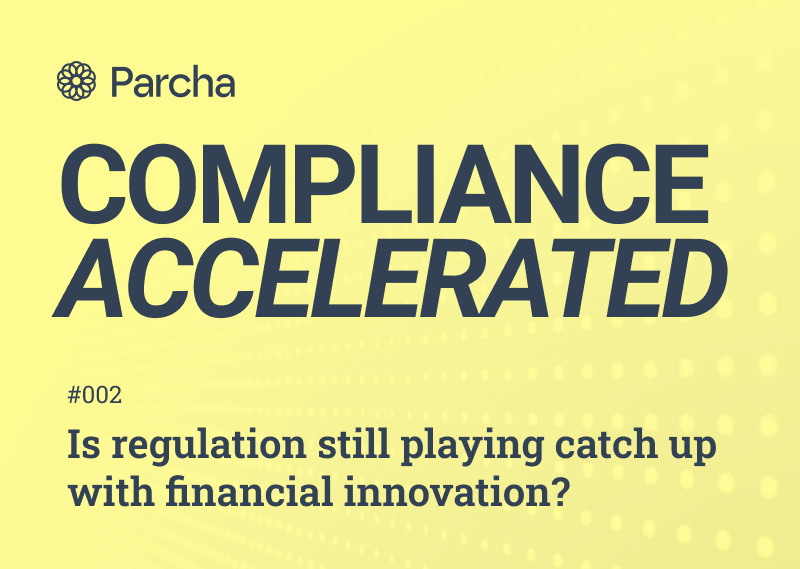
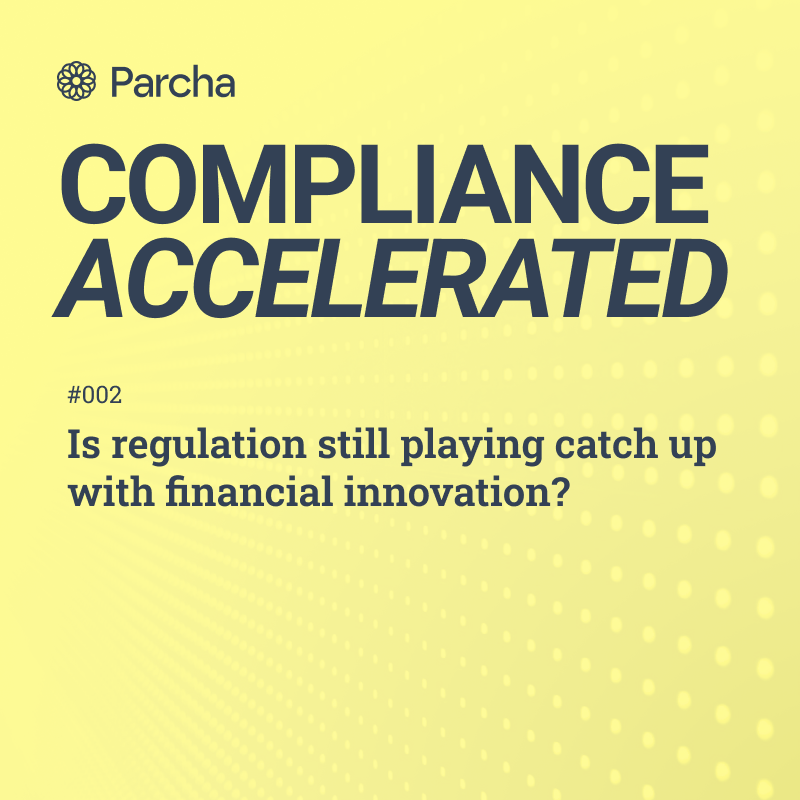
Compliance Accelerated is a podcast about the future of compliance and risk in banking and fintech. It is completely generated by AI using Google's NotebookLM and edited by our team at Parcha.
In this episode of Compliance Accelerated by Parcha AI, hosts Alice and Bob engage in a detailed exploration of the evolving landscape of financial regulations in response to rapid FinTech innovation, focusing on the implications of the recent FDIC ruling following the Synapse Meltdown. They discuss the critical importance of custodial accounts in digital banking, the challenges posed by lack of transparency, and the role of FDIC insurance. The conversation covers the evolving KYC and KYB legislative framework and the potential impact of the Anti Money Laundering Act of 2020. Key takeaways include the inevitability of increased regulations in the FinTech space, the necessity for firms to adapt, and the importance for consumers to understand where and how their money is held. The episode underscores the balancing act between encouraging innovation and maintaining consumer protection.
Timestamps
00:00 Welcome to Compliance Accelerated
00:41 Diving into FDIC Insurance in the Fintech Era
01:35 Understanding Custodial Accounts and Their Risks
02:07 The Synapse Meltdown: A Case Study
04:05 Regulatory Catch-Up: KYC, KYB, and AMLA
05:43 Key Takeaways for Fintech Users
07:31 Final Thoughts and Listener AdviceTranscript
Transcript
Compliance and AML history
[00:00:00]
Welcome to Compliance Accelerated, a podcast by Parcha AI. At Parcha, we help banks and fintechs onboard more customers faster with stronger compliance using AI. Our AI is able to accelerate document verification, enhanced due diligence, and AML screening. In this episode of Compliance Accelerated.
Our AI hosts, Alice and Bob, talk about how regulations are trying to keep up with financial innovation and the recent FDIC ruling in the aftermath of the Synapse Meltdown. We hope you enjoy the episode. Let us know if you have any feedback.
Alice: Today, ~~uh, ~~we're doing a deep dive into something that's pretty important to, ~~you know, ~~your financial well being. ~~Yeah. ~~The future of FDIC insurance in this age of fintech. And you, our wonderful listeners, reached out because ~~you're, ~~you're keeping a close eye on the rapid changes in digital banking.
Yeah,
Bob: it's changing quickly.
Alice: So we're digging into this FDIC [00:01:00] memo you sent along with ~~some, uh, ~~some legislative snippets on KYC, KYB.
Bob: ~~It seems like you've stumbled onto a pretty, uh, Yeah. ~~Is our current financial system really ready to handle this rapid fire innovation?
Alice: Exactly. And, and this FDIC memo in particular seems to be, ~~uh, ~~kind of sending up a warning flare.
Yeah. Specifically around what they're calling a potential synapse problem. Right. Now, I'll admit, when I first saw that term, I thought, is the FDIC branching into neuroscience now? Yeah.
Bob: But, ~~uh, ~~it turns out this is way more interesting and a lot closer to home for anyone who uses, ~~you know, ~~digital banking these days.
Alice: Right. It all comes back to this idea of custodial deposit accounts.
Bob: Okay.
Alice: ~~Um, ~~you might not even realize you're using one. ~~Right. ~~But they're ~~more and ~~more and more common. ~~Yeah. ~~As fintech companies kind of weave their way into traditional banking.
Bob: ~~Okay, so let's unpack that a bit. ~~Custodial accounts.
Alice: Yeah.
They're
Bob: kind of like the behind the scenes players in a lot of fintech innovations.
Alice: Exactly. Think of it this way. Let's say you're using an app to invest spare change. ~~Right. ~~Or a platform that lets you pay friends instantly, there's a good chance your money at some point is being held in a custodial account.
Bob: Okay. It's
Alice: essentially a large account managed by a third party that holds funds [00:02:00] for multiple beneficiaries. Mm hmm. Mm hmm. That sounds convenient, not catastrophic.
Bob: Well, convenience can sometimes come with unforeseen risks.
Alice: Okay.
Bob: And the FDIC memo uses ~~this, uh, ~~this example of the Synapse bankruptcy to illustrate exactly what can go wrong.
Alice: Yeah.
Bob: Synapse was handling these custodial accounts.
Alice: firms,
Bob: ~~when they went under, ~~it exposed a real vulnerability in how we think about FDIC insurance.
Alice: Now for our listener who might not have followed the ins and outs of the Synapse situation. Right. What happened?
Bob: ~~It was a mess, to put it mildly. Okay. ~~When Synapse went bankrupt, They weren't able to provide clear records of which funds in those custodial accounts belong to which individual customers. This threw a wrench into the whole idea of pass through insurance, which is supposed to protect your money even when it's held by a third party.
Alice: ~~Pass through insurance. ~~You know, that's a term I hear thrown around.
Bob: Right.
Alice: But honestly, I bet most people
Bob: It's one of those things. Don't
Alice: fully grasp how it actually works.
Bob: You don't think about it until you need to.
Alice: Right.
Bob: Which is often too late.
Alice: Yeah.
Bob: ~~In a nutshell, it means that ~~when you [00:03:00] deposit money into a custodial account, like the one CNAPS managed
Alice: Okay.
Bob: It's supposed to be treated as if you deposit it directly with the bank.
Alice: Okay.
Bob: The intention is for the FDIC insurance to pass through the custodian and protect your individual funds.
Alice: Right.
Bob: But, when records are unclear, like what happened with Synapse, it becomes almost impossible to determine who's covered, ~~and for how much, ~~potentially leaving consumers vulnerable.
Alice: So in this whole scenario, the FDIC is essentially saying, hey, we've got this safety net, but if we don't know whose money is whose ~~even ~~We can't guarantee it will land safely.
Bob: ~~Exactly. Right. And that's the big concern they're highlighting. ~~This rapid evolution of digital banking, with custodial accounts at the heart of it, is outpacing existing regulations and safeguards.
Alice: And that's where this deep dive gets really interesting, because no one wants to hit pause on financial innovation, but at the same time, it feels like we're building the plane as we're flying it. ~~Totally. It really does feel like we're in uncharted territory here. Yeah. The, ~~the speed of FinTech innovation is incredible, but like you said, those safeguards haven't necessarily kept pace.
Bob: It's a [00:04:00] classic case of regulation playing catch up.
Alice: Right.
Bob: And, ~~uh, ~~it's not like we haven't learned from past mistakes.
Alice: Right.
Bob: You actually sent over a fascinating timeline of KYC, KYB legislation.
Alice: Yeah. Which
Bob: I think illustrates this perfectly.
Alice: For our listener, KYC and KYB stand for Know Your Customer and Know Your Business.
And these regulations are all about financial institutions verifying who they're doing business with. ~~Mm hmm. ~~And when you look at this timeline, ~~it's, ~~it's really striking how many of these major regulations were enacted in response to some kind of financial crisis.
It's a pattern of reacting to problems. After they've already exploded.
Alice: So like putting out fires instead of preventing them in the first place.
Bob: Precisely. And that brings us to, ~~uh, ~~the AMLA of 2020. Right. The Anti Money Laundering Act. This one feels different, though.
Alice: Okay.
Bob: It's almost like lawmakers were looking ahead trying to anticipate the next big challenge.
Alice: And a big part of that seems to be this idea of a beneficial ownership database, right? ~~That's a pretty massive undertaking. ~~
Bob: ~~It is. ~~[00:05:00] Imagine a database that could track down the actual individuals who own and profit from companies. ~~Wow. ~~Even if they're hidden behind layers of shell corporations, it
Alice: would be
Bob: a game changer for combating money laundering and financial crime.
Alice: Yeah, I can see why you called it ambitious.
Bob: Yeah.
Alice: That's a lot of data to gather, and I imagine there are some serious logistical hurdles. ~~Oh, ~~
Bob: ~~absolutely. ~~
FinTech innovation continues to accelerate.
Alice: So we've got this ~~like ~~collision course almost, right? Right. Between this ~~like ~~breakneck innovation in FinTech.
Yeah. And this slow. Often reactive world of regulation. What does this all mean for ~~like ~~our listener, you know, who's probably just trying to manage their money safely and maybe explore some of these cool new financial tools?
Bob: Yeah. I think there are a few key takeaways here for anyone who's paying attention to the FinTech space.
First and foremost, increased regulation IS . Coming, whether it's driven by AMLA or some future legislation we haven't even seen yet. The days of fintech operating in a [00:06:00] regulatory wild west are numbered.
Alice: ~~So ~~more guardrails are being installed on that roller coaster, even as it's picking up speed?
Bob: Exactly.
Now that doesn't mean innovation is coming to a screeching halt, but it does mean that fintech companies, especially those dealing with custodial accounts, We'll need to adapt.
Alice: Okay. How soon you
Bob: might start seeing longer wait times.
Alice: Okay.
Bob: To open new accounts as banks and fintechs implement stricter K-Y-C-K-Y-B checks,
Alice: right.
Bob: To comply with these evolving regulations,
Alice: which while potentially annoying, is probably a small price to pay for greater peace of mind.
Bob: ~~Absolutely. ~~Yeah. And that brings me to the second key takeaway,
Alice: okay.
Bob: For our listener.
Alice: Mm-Hmm. ,
Bob: the FDIC. Right. And so what we're doing through this memo and its actions is sending a clear signal that it's taking consumer protection in the age of fintech seriously.
~~Okay. ~~They're raising red flags, pushing for greater transparency, and working to ensure that even as this financial landscape changes, ~~Right. ~~Those core protections Remain in place,
Alice: ~~which makes me think back to that initial like synapse problem we talked about. ~~It's [00:07:00] almost as if the FDIC is saying like,
Bob: right,
Alice: we're learning from these situations and we're not going to let them happen again
Bob: ~~That's a good way to put it. The synapse case. ~~Well, messy.
Alice: Yeah.
Bob: Served as a wake up call.
Alice: Right. It
Bob: highlighted a vulnerability in the system, and now we're seeing the regulatory response unfold.
Knowing your money is safe. Understanding how these systems work, that's still paramount.
Bob: ~~Absolutely. ~~Yeah. It's about finding that balance. ~~Yeah. ~~Between fostering innovation.
Alice: Right.
Bob: ~~And ~~ensuring stability in consumer protection. ~~Mm hmm. ~~It's a tightrope walk.
Alice: Yeah.
Bob: But a necessary one.
Alice: Well said. A huge thank you to you, expert speaker, for walking us through this.
Intricate landscape, of course. And to you, our ever curious listener, we'll leave you with this. ~~Yes. ~~As you explore the exciting world of fintech, don't forget to ask the important questions. How is my money being held? ~~Right. ~~Who's protecting it? And what happens if something goes wrong? ~~So important. ~~Until next time, keep those curiosity engines running.


